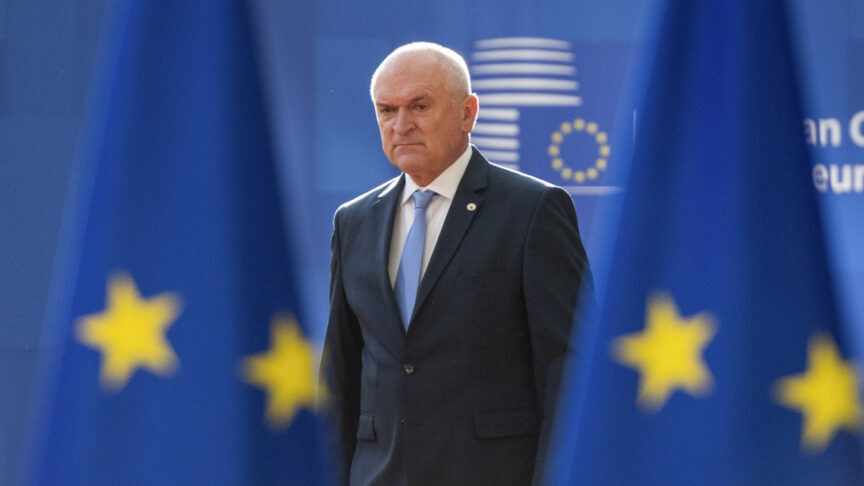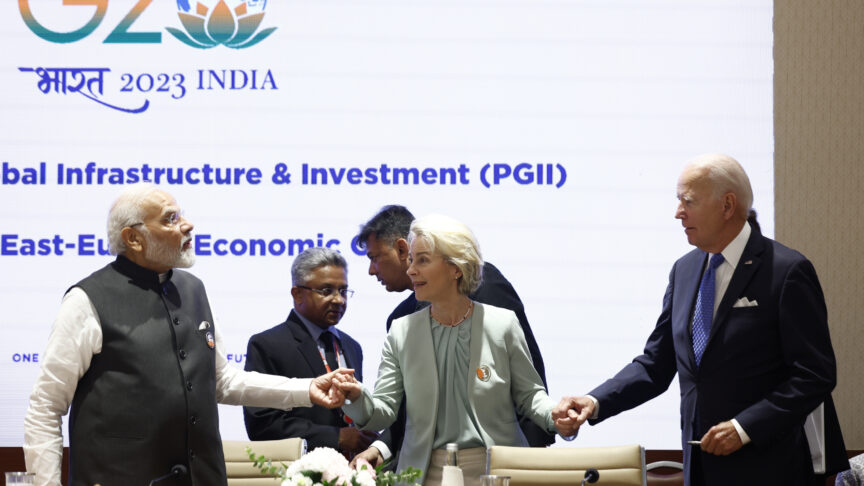Armenian genocide, German realpolitik
At a time when Germany and the EU are depending on Turkey’s help to solve the refugee crisis, the German political class clearly feels the need to demonstrate that this does not give Turkey a free hand when it comes to democracy and human rights issues.
Did the German Bundestag really need to issue a resolution on the Ottoman genocide against the Armenians? The vote allowed parliament to demonstrate its near-unanimous agreement on how to categorise the actions of people in another country 100 years ago – a topic that is completely uncontroversial among German MPs – at the cost of antagonising Turkey, a crucial partner in managing the refugee crisis.
After all, the Bundestag is not on the record condemning Belgium’s colonial crimes in Congo, or French actions in Indochina or Algeria, to pick out just two other allies with historical baggage. What’s more, it took parliament more than a century to debate the fate of the Herero and Hama people in modern-day Namibia, where the German colonial army massacred over 80,000 people between 1904 and 1908 – there is still is no formal apology, due to the risk of compensation claims.
If it had been the Bundestag’s first consideration of the Armenian issue, the vote would have been overdue, given the deepening mutual dependency between Turkey and Germany. But the parliament held extensive debates on the issue in 2005, adopting a resolution, and again on the 100th anniversary of the massacres in 2015, when President Joachim Gauck also gave a speech on the topic.
It is a symbolic gesture in the face of realpolitik, because most members of the Bundestag support the EU-Turkey agreement on refugees.
Then and now, parliament emphasised the need for reconciliation, and pledged German support to both sides. There is a constructive element to the 2016 resolution – Turkey is in denial over the allegations, and engages in reconciliation efforts with great reluctance. German officials and civil society have repeatedly sought to nudge their Turkish counterparts to employ tools of reconciliation that have worked elsewhere, such as commissions of historians and legal experts, youth exchanges, and cultural programmes.
Two aspects set the current resolution apart – its content, and its context. In content, it goes beyond previous resolutions to put the Turkish actions into the same category as the Holocaust, using the term “Völkermord” (genocide), though reiterating the unique character of Nazi Germany’s crimes. German parliamentarians are motivated by the wish to avoid further criticism for failing to use this term. But, more importantly, they want to send a clear sign of disapproval for how the Turkish authorities deal with the issue. The resolution criticises the treatment of religious minorities in Turkey today, which must be read in the context of the German critique of the government’s illiberal turn.
At a time when Germany – and the EU – are depending on Turkey’s help to solve the refugee crisis, the German political class clearly feels the need to demonstrate that this does not give Turkey a free hand when it comes to democracy and human rights issues. In recent months, Merkel has been accused of kowtowing to Erdoğan, and was notably absent from the debate. These accusations made politicians in her party and coalition all the more determined to be seen to stand up for what they believe in.
It is a symbolic gesture in the face of realpolitik, because most members of the Bundestag support the EU-Turkey agreement on refugees. They have no wish for the government to abandon it, nor do they want Ankara to walk away from the deal in a fit of indignation. On the other hand, they were determined not to shy away from the debate for fear of a negative response from Turkey.
The chancellor’s absence, and Foreign Minister Frank-Walter Steinmeier’s nuanced statement after the vote, indicate that the German government will continue with business as usual. The message to Ankara is to do the same: state its case, make its symbolic response, and carry on.
The European Council on Foreign Relations does not take collective positions. ECFR publications only represent the views of their individual authors.


